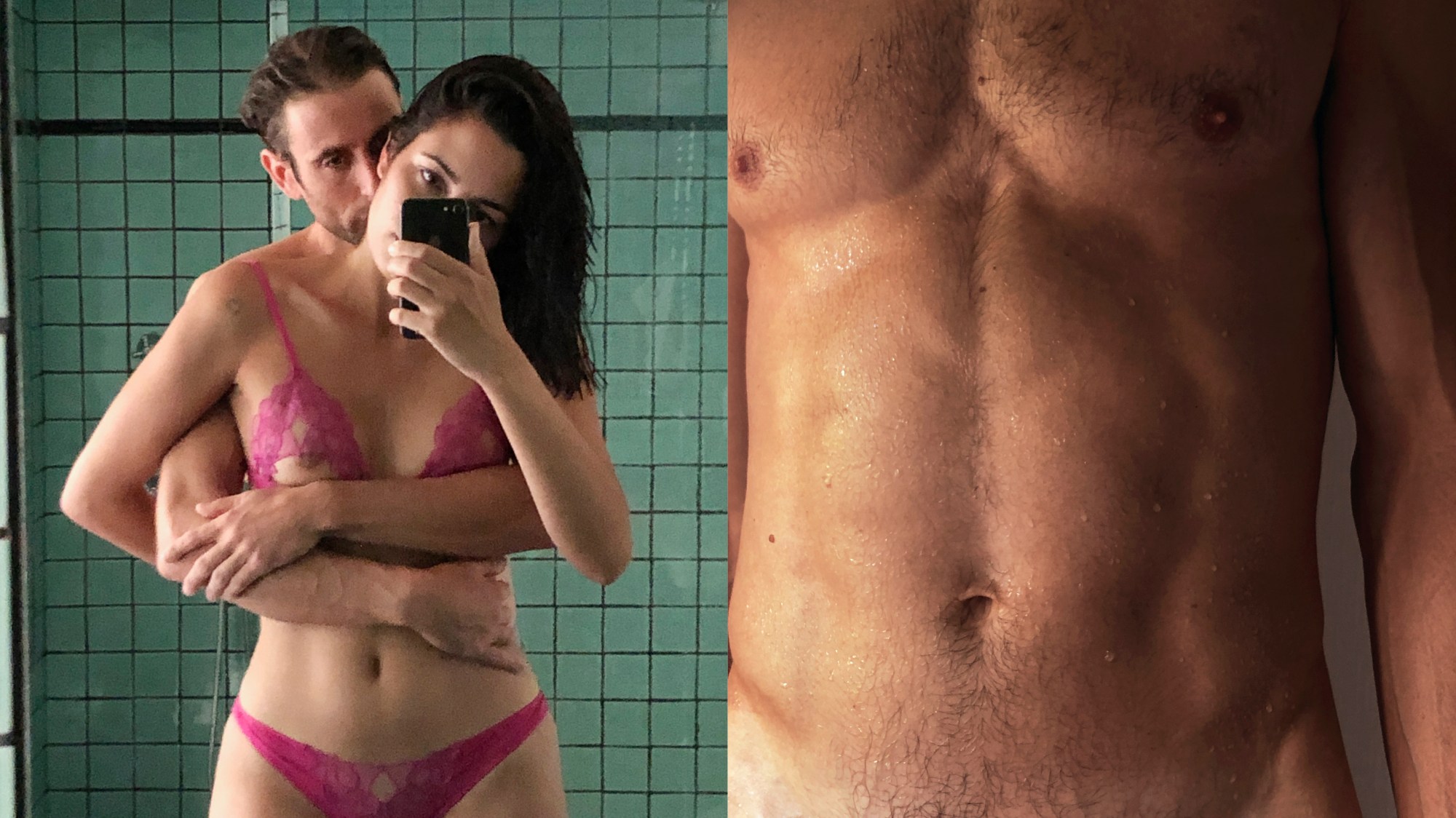An undercurrent runs through Karla Hiraldo Voleau’s raw and radical new work, Another Love Story, currently displayed at Studio de la MEP, Paris: what does it mean to be dispossessed from your own story? Karla’s is one that begins at the end: a revelatory phone call with another woman…
KARLA: I don’t want to intrude into your life […] but, last week, I discovered that X and you are still in touch. He said that you needed help and support because of your fragility, and he admitted to having lied to me about it. I just discovered all the different events you two went through, and that this has been going on for six months. You can imagine my reaction, and we are on the verge of breaking up. He was incapable during our fight, or after, to get me the answers that I needed. This is why I want to know your role in this situation, and maybe clear some things up. […] I just… Obviously, my first question is – just to get this out of the way – are you in a relationship with him?
ELLE: Yes.
[pause]
What did he tell you?
KARLA: That he’s not.
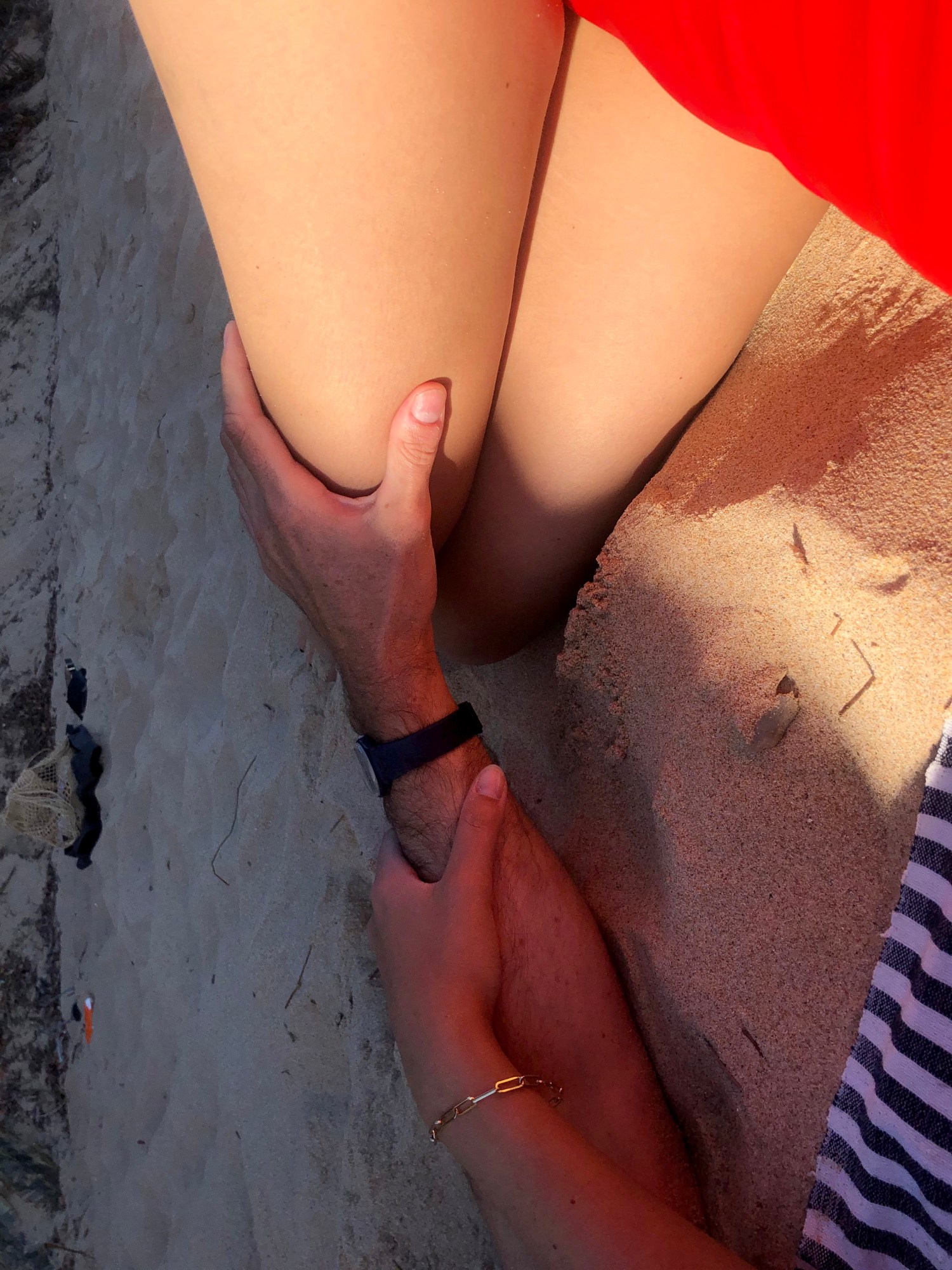
The transcription forms the entry point into Karla’s show. What follows is an installation of 13 panels — one for each month — chronicling the last year of her relationship with her ex-boyfriend (named X to maintain his anonymity), before her devastating discovery. In this tale of lies and deception, the notion of double is central. So, in a quite brilliant and inspired intervention, Karla has mixed together appropriated originals from her camera roll with staged reproductions. For the latter, Karla hired an actor and went to the spots she and X shared their love to retell her relationship. “I thought, let’s make these moments happen the way I thought they happened, or indeed the way I wanted them to,” she says. “In this way, they will at least exist once in this life.”
The extension and overlapping of histories in Karla’s panels — arranged in grids to echo an Instagram feed — are part of what makes them so intriguing. And by turning, in the Sophie Calle tradition, life into fiction and fiction into life, Karla not only questions the complex traffic between truth and lies, but demonstrates how all romances are necessarily performative. Although the images she shares are of pleasant times, it’s impossible to ignore the treachery at their core. Yet, by becoming a bold and daring editor (or “re-programmer”), Karla has wrested control of a story in which she had none. Over the phone, she opens up about the affair, #couplegoals and how she bounced back from heartbreak.
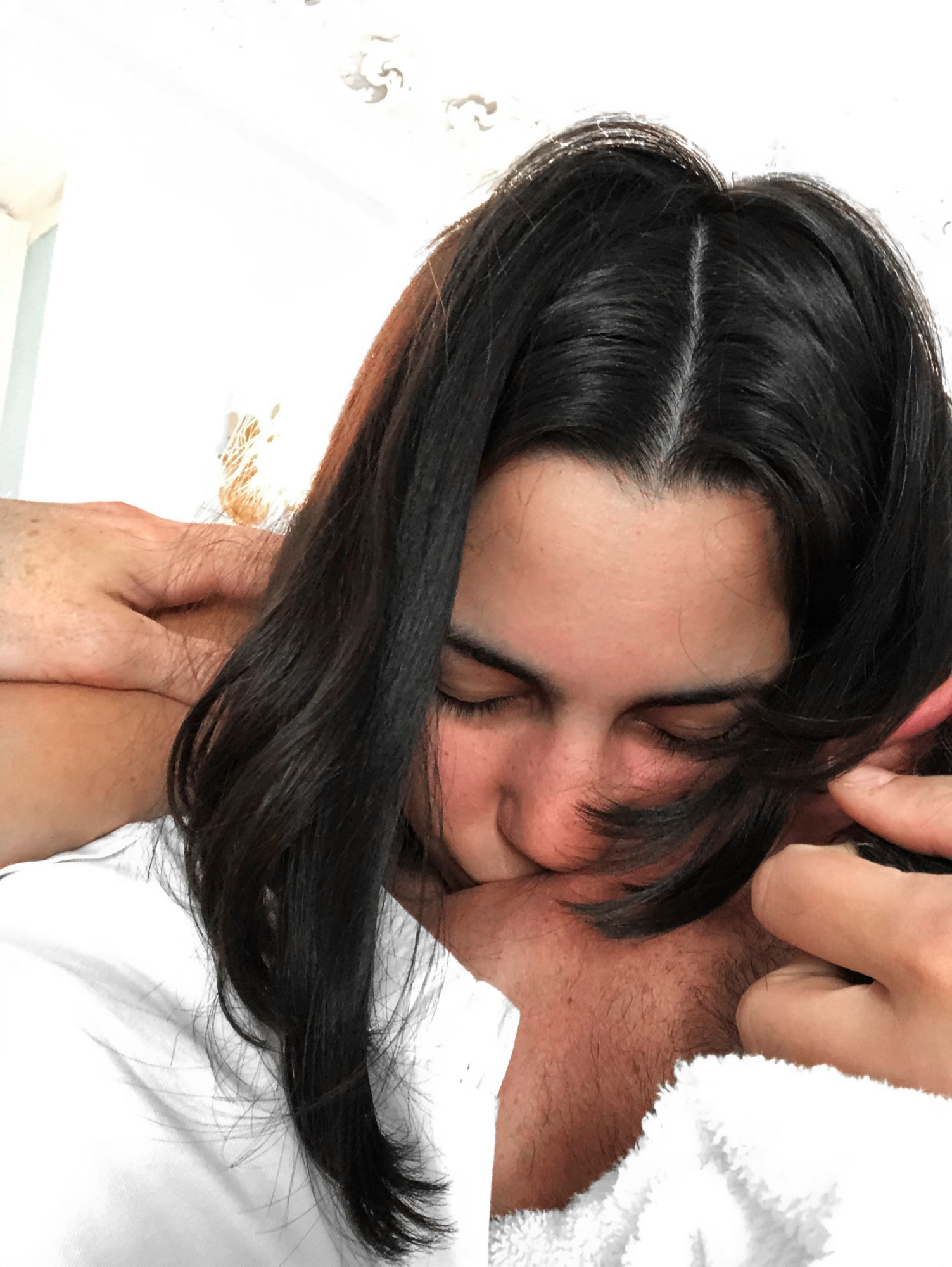
I guess we have to start at the phone call.
This phone call was pretty intense. The single moment this other woman and I discovered that we were dating the same guy, X. He was living this double life with her, like really… Sharing an apartment and pet, planning a family together and much more that I can’t say. It was beyond everything I could imagine, and so I felt like I was in another kind of reality, like a movie. Or even that this was too crazy for a movie. But I guess movies have to come from somewhere, right?
The work itself plays out like a storyboard, with the phone call transcribed in a screenplay format…
Yes, everything in this work exists on this line between fact and fiction. These are the questions that I’m always looking to pose to the viewer… What’s real, and what is staged? How far did I go? How can you trust photography?

When did you get the idea to make this work?
I was actually commissioned by the MEP in Paris to do something about “love” for the group exhibition Love Songs, which is currently up. I already had this idea for a long time to make something about X, something romantic and positive. But this tragic discovery happened right in the middle. Obviously, I could no longer celebrate our love that was reduced to ashes, so I decided to explore another idea and talk about the breakup, although it’s much more than “a breakup”.
You still wanted to show all those happy pictures from your relationship?
Yes, in a very straightforward way. I was also aware that I had to protect myself from X, legally. I couldn’t show his face, and in no way was I pursuing some kind of revenge project or exposé. For me, this was all about me reappropriating my own narrative because, when I first learned of X’s double life, I felt that I didn’t exist, that none of this actually happened, that I was crazy. In the end, what is the truth about your life and your memories?
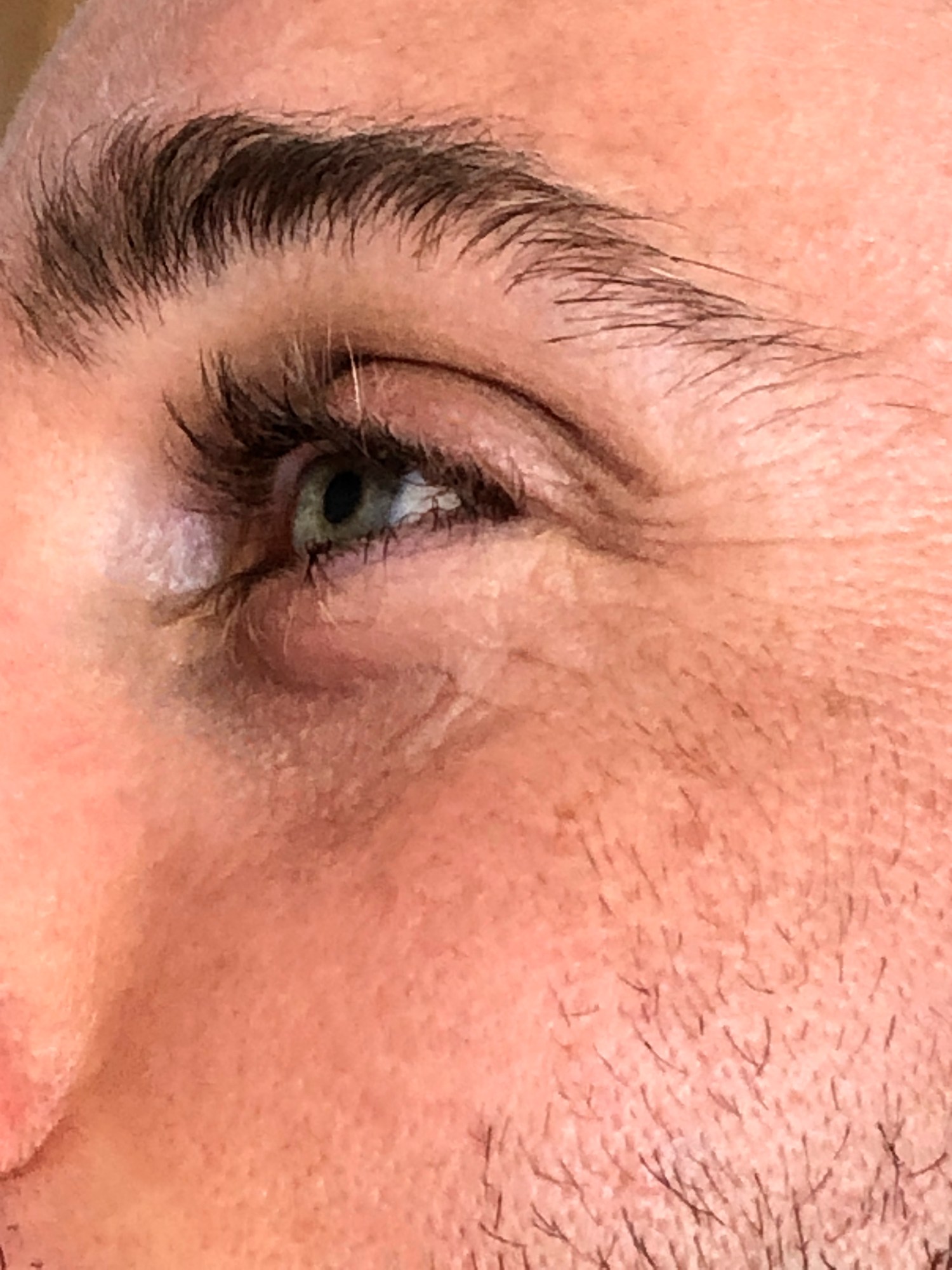
So you assumed the role of a writer?
Yes, or maybe more the role of a re-programmer. I hired an actor, and restaged all of our intimate moments together. I went back to the places where the original pictures were taken, styled the both of us in identical clothes and used the same phone to shoot everything.
What was it like revisiting your camera roll?
This actually wasn’t a big editing job, and it was pretty easy looking for the images to recreate. I wasn’t actively seeking out those picture-perfect shots, and this is the point which I think people can relate to; all the images I had taken were already essentially performative. Each contains layers of my own fantasies about what a “perfect couple” looks like. So, I too was playing a role, acting as a double in my own relationship. It reminded me of #couplegoals, when you become — or project — something other. I guess this is why I only took pictures of us on holiday, with all those cliches: sunsets, lakeside views, mirror selfies, romantic dinners. It makes sense, though. I mean, why would you take your phone out when you’re having an argument?
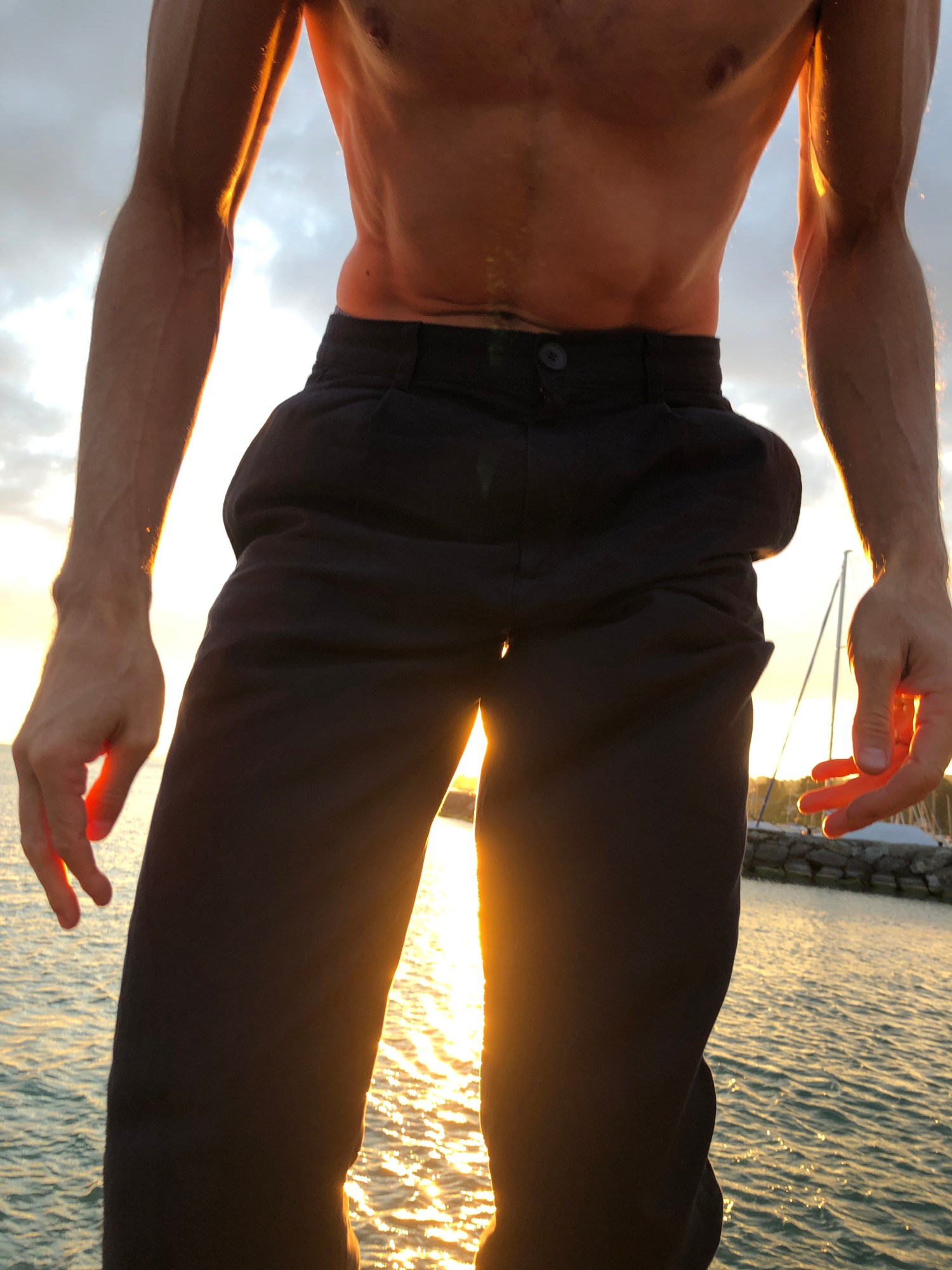
What surprised you the most?
What’s funny is that, even though I was unconsciously painting the perfect picture of my relationship, you can also see how it evolved throughout the year. This is why I decided to organise the images into groups, or “clouds”. Each indicates the mood of each month. It was very surprising… At first, X and I get back together, and there are a lot of pictures, all very sensual and often taken in the intimacy of our bed and so on. There are many portraits, too, I guess because I wanted to look at X as much as possible, to grab his image. As the time passes, the cracks gradually emerge, and you can see how I’m distancing myself from him, taking pictures from behind or from afar. His body often appears as a fragment. By the end, he’s almost only an idea.
That’s the old self-mirroring cliché of the camera, right?
Yes. In this sense, photography could be seen as a truthful medium. There’s, of course, a reality there, in an image. But I’m more interested in autofiction, telling stories through narrative. This feels more honest, whereas one picture alone doesn’t really say anything to me.

What’s very powerful is how you have reconquered your own role – and sense of self – after your heartbreak…
This is the best thing to come out of this tragedy. I wrote, cast, produced and shot everything one month after the breakup. I mean, I wouldn’t say it was like “therapy”, taking away all the sadness and all the problems, but it indeed created a distance. My friends were worried that I would feel down, revisiting the places X and I had shared our love together, restaging our affections and so on, but the shooting process was actually very joyful. I was taking control of my position. Now, it somehow feels real to me.
And yet it’s a very universal story?
I hope this work doesn’t come across as self-indulgent, like, “Oh, poor me…” Sure, this might be my little life story, and I do feel vulnerable in that sense. But I think, as soon as I’ve told it to someone else, it’s not mine anymore, it’s finished. Already, people have reached out to me, sharing their own experiences about love and loss. In the end, if anything, I am presenting views about universal things: relationships, how you view yourself, emotional abuse. When you go through something like this, I think it helps to see it happen to someone else. It makes you feel as if everything has already happened, is happening now and will happen again.
Is this the attraction of fiction?
Yes. It’s just another love story.
‘Another Love Story’ runs at Studio de la MEP, Paris until 28 August 2022.

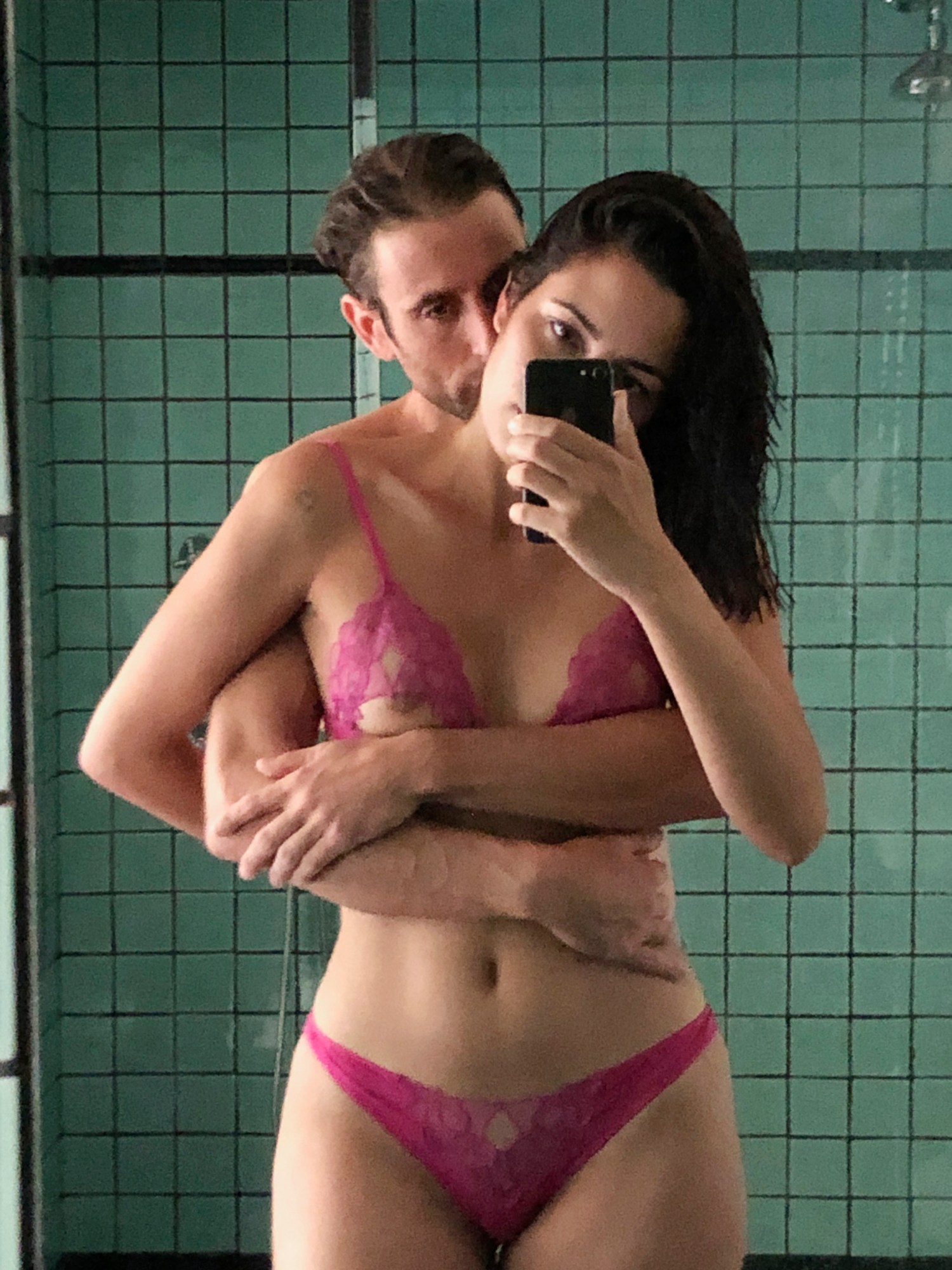
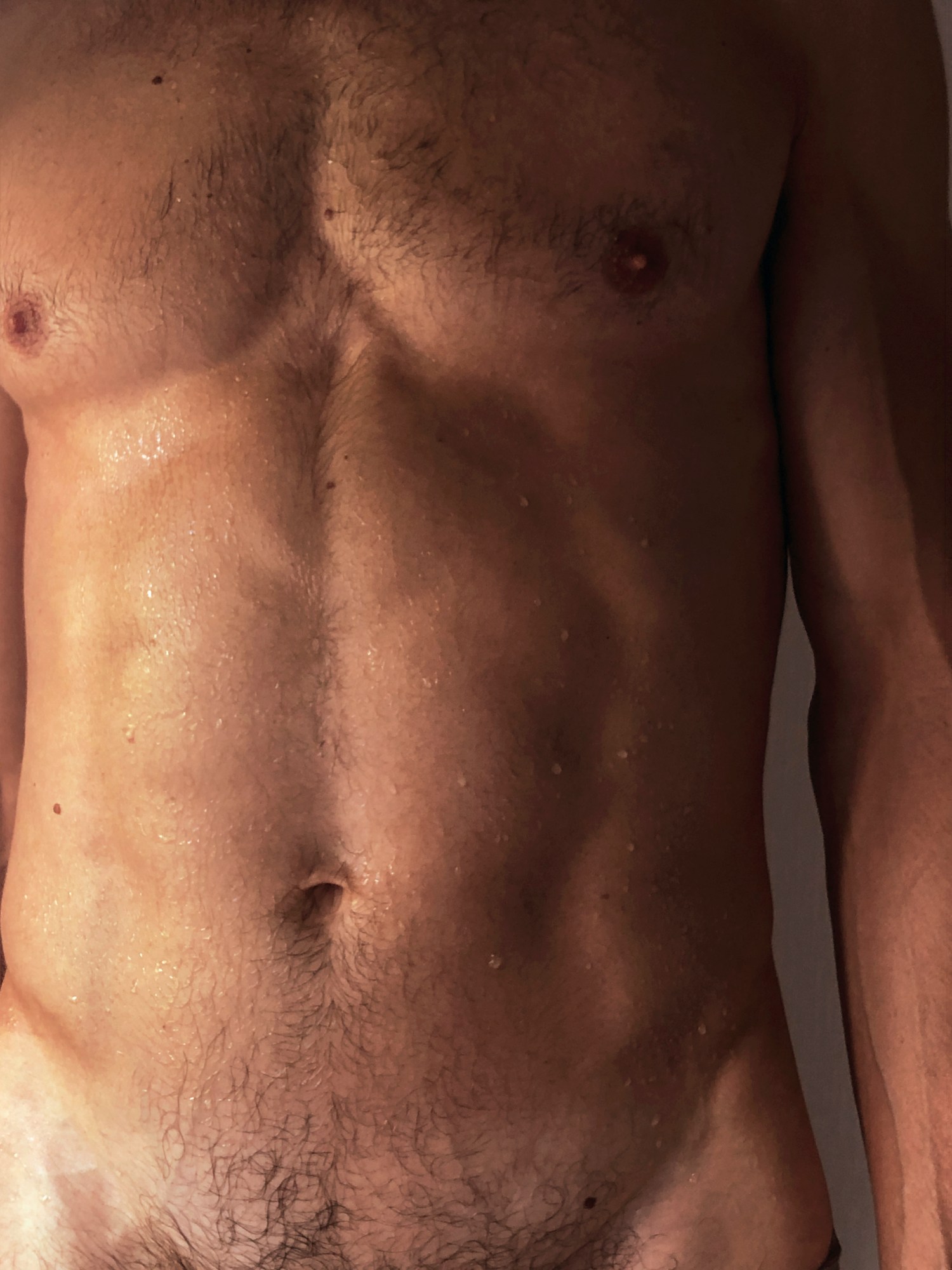
Credits
All images courtesy the artist and MEP
